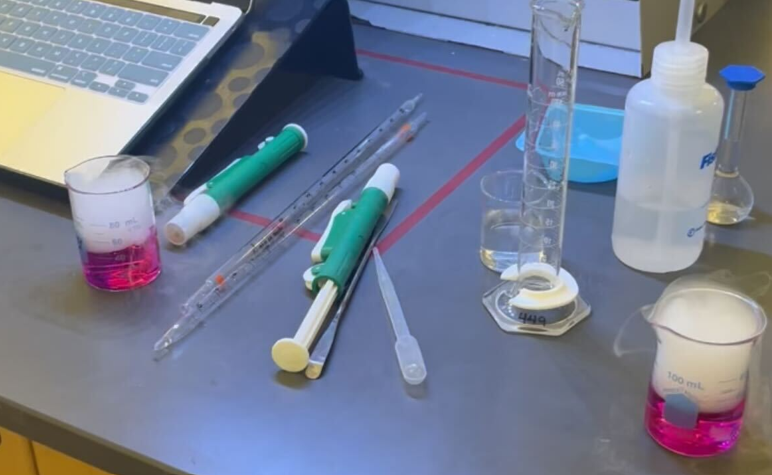A few things I wish had known before coming to Penn.
Photo Credit: Ireland Gorecki
By Ireland Gorecki
While it may feel comforting to daydream and ponder all the practicalities that come with entering Penn’s pre-professional environment, it’s hard to fully grasp what being a pre-med student is like until you’ve experienced it. When I arrived in Philadelphia for New Student Orientation, I was filled with excitement to meet my professors, join a research lab, and maybe befriend some other aspiring physicians. I was one of only two students in my high school to ever make it to a school like Penn, so I didn’t know anybody going in— let alone anyone pre-med. There are so many things I’ve learned—and things I’m still learning—that I wish I knew sooner. Hopefully my insight can give you a better taste of what to expect!
- Do your best to plan out all your classes for the next eight semesters.
I know it may seem intimidating to guess and meander through many different websites and spreadsheets, but take some time to really look at the pre-med requirements before prioritizing classes that look interesting. You won’t be able to make an absolutely perfect plan for your next four years, but you can at least feel more grounded and confident in your ability to fulfill your requirements in a timely and organized manner. There are a few Penn-specific websites, like Penn Course Review and Penn Course Plan, that really helped me figure out which classes had the best professors and which classes are more difficult so I could plan accordingly.
- Do not be afraid to drop a class.
As a freshman, I was terrified to surrender a class that was not suitable for me or didn’t work well with my current workload. I’ve realized now that I could’ve saved myself many hours of stress and work by bumping a course to the next semester. It might feel intimidating if you’ve never “quit” anything in your life, but I promise, you should take advantage of the add/drop period. The schedule you’re given at the beginning of the semester can look different at the end of the semester—and that’s ok! Sometimes it’s better to drop a class than it is to keep it and let it affect you, or your GPA.
- You might not study the same way your peers do.
I never heard advice like this in high school. Instead, I feel like I was always encouraged to study like the best student in the class. Oh was that wrong. Many of my friends love studying with whiteboards and colorful markers, but I learned that, personally, I work much better in open study spaces and libraries on my tablet. In college, you will get to know yourself in ways you never thought about in high school. Sometimes the aesthetic of “college studying” isn’t always helpful. Do what works well for you and don’t be afraid to try new methods each semester. For example, one thing I find helpful is to work on a specific class in one specific library the entire semester. Whenever I sit down in that area, I feel reminiscent of my most recent study session there, and it helps me focus better. I encourage you to try it!
- Do not be afraid to take an 8:30 a.m. class.
Over the summer when I was picking out my classes, many upperclassmen all over the internet always encouraged me to avoid early morning classes. Following their advice, all of my classes started at 10:15 a.m. my entire freshman year. In fact, some of my friends were so conscious of this warning that they opted to take a class with a more challenging professor, just to get out of getting up early. As a sophomore—this might be an extremely hot take—I look forward to my 8:30 a.m. classes. Yes, it’s a struggle to get out of bed for an earlier class, but I find that I am most productive when I start my day with the sun and end it at a reasonable time. I’m not encouraging you to take morning classes, especially if you’re not a morning person. I’m just saying, if you end up with an 8:30 in your schedule, don’t fret–you might actually like it.
- Lab sections are long and challenging, so make room in your schedule to eat and take care of yourself.
At Penn, most intro-STEM classes require you to take a corresponding lab component, which is typically three hours and requires you to stand the entire time. I cannot recount the amount of times I’ve arrived to these classes with an empty stomach and no water. Even this semester, I’m learning that I have to get up earlier and pack a lunch or some snacks for the days I have lab. If I don’t, I feel dizzy and sick, and I cannot do my best work. In fact, I’ve seen students in my chemistry labs pass out due to lack of food and water twice now. Please, allow yourself time in your schedule to eat! It sounds outlandish, but I promise you, this is something that becomes challenging for many students with a busy schedule. But, a busy schedule should not trump your ability to take care of yourself.
- There are no two identical pre-meds.
One of the things that shocked me the most at Penn was how customizable the degree can be. I am a STEM major, but I am able to minor in American Public Policy, which is a cross-listed minor with the Wharton School, out of pure interest. And many Penn students do the same. I know students who are concentrating in Finance but also pursue coursework in Computer Science or History just because they can. One of my best friends is a pre-med Linguistics major. When you ask a fellow pre-med for advice or recommendations, it’s important to recognize (and celebrate) that they will be different from you and they will also have a different future than you. Don’t expect to follow one students’ class schedule to a T and become the same physician. It just won’t happen. Take everyone’s advice with a grain of salt, as they say. If one of your peers is publishing research across 3 different labs, that doesn’t mean that your research at your one research lab is insufficient to get into med school.
- Try to figure out if you plan on taking a gap year or not.
At Penn, pre-meds tend to fall in two camps: those who are planning on taking a gap year (or multiple), and those who are not. The reason I think it’s important to figure this out early in the process is because you can plan your courses around it. For example, if you don’t want to take a gap year, it’s best to complete your pre-requisite courses in your freshman and sophomore years, to hopefully complete the MCAT your junior year, and begin writing your essays at the end of junior spring. If you plan on taking a gap year, you can take the MCAT after graduation and hence spread out your pre-requisite courses to hopefully lessen the workload. It all depends on your goals and your preferences.
- Decide when you want to complete the Chemistry track.
To be a pre-med at Penn, you must complete two semesters of General Chemistry with Lab, two semesters of Organic Chemistry with Lab, and one semester of Biochemistry. The good news is that all of these courses award you with a minor in Chemistry! The bad-ish news is that there is a consequence between taking Chemistry in the “on” or “off” semester. Taking Chemistry in the “on” semester means that you start the whole track the fall of your freshman year. Taking Chemistry in the “off” semester means that you start the whole track the spring of your freshman year. Personally, I chose to take Chemistry in the “off” semester, and I love it. Since fewer students start taking it in the spring, you have significantly smaller class sizes, better professors (in most cases), and more flexibility with recitation and lab sections. Some students may disagree with me, but I think it’s best to do your own research on what is right for you. Students who love the “on” track system appreciate how they are better set up to take the MCAT their junior year. In the “on” track, you can finish all your pre-med classes by the end of your sophomore year. In the “off” track, you finish all your pre-med classes by the end of your junior fall. Personally, I’ve chosen to take Organic Chemistry II with lab over the summer at Penn in order to take the MCAT during my junior fall. I had no idea there was a difference between the tracks until I came to Penn.
- Join clubs!
I’m not sure what happened here, but many pre-med students that I’ve interacted with in the Class of 2028 (current freshman), don’t want to join any clubs in the fall of their first year. They claim that they would rather get integrated into classes and university life first before getting integrated into clubs. The reason this has been shocking to me is because my peers in the Class of 2027 are so different in this regard. From my perspective, it feels like we joined way too many clubs at the beginning in order to get integrated into university life and make friends. Maybe it is a case by case basis, but I will never stop encouraging students to join clubs. Penn offers over 1900 clubs for students to take part in, and I truly believe clubs are the best place to find “your people.” Whether it is a performing arts group, club sports team, or Greek organization, try to find spaces and people that give you a sense of community outside of classes. It doesn’t have to be medically related, but it should be something that will give you a community of people who will eventually feel like family (shoutout to Quaker Girls!). Additionally, freshman fall will likely be your easiest course load. When courses become more challenging, it can be harder to also apply to clubs and earn leadership positions, all of which are necessary for medical school applications.
- Get involved in research.
As a tour guide, this is my favorite thing to talk about to prospective students: research! Penn is an incredible research institution with labs and organizations constantly seeking undergraduate students. I can confidently say that in nearly every single one of my pre-med courses, my professor has emailed at least once with a research opportunity for students to apply for. Personally, when my BIOL 1123 TA was introducing herself, she started by introducing her research in virology and phylogenetics. I emailed her after class to inquire a little further, and the next week I was working with her in her lab as the only undergraduate. So many professors and faculty want undergraduates in their labs and always look for ways to include them in the research atmosphere. Penn is a perfect place to explore and get experience in many different labs.
These are just my top ten pieces of advice that I’ve cultivated over the years. I wish you the best of luck with your pre-med journey and feel free to contact me anytime with any questions or even a peek at my course schedule.
Ireland Gorecki is a sophomore in the College studying Biology and American Public Policy from Atlanta, GA. Ireland is also a photographer and staff writer for The Pennsylvania Post. Her email is igorecki@sas.upenn.edu.




